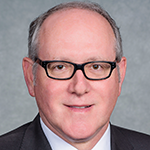
Bonezboyz / shutterstock.com
Engaging in lifelong learning by maintaining certification has been a required method to confirm medical competence since 1933 through the American Board of Medical Specialties (ABMS). Established by the American Medical Association and the American College of Physicians in 1936, the American Board of Internal Medicine (ABIM) is one of 24 ABMS certifying member boards. In 1972, the ABIM began offering certification for rheumatology diplomates who had already achieved an ABIM certification in internal medicine. Today, the majority of the ACR’s 7,200 physician members—representing approximately 3.5% of ABIM’s 200,000 diplomates—are certified by the ABIM.
Since 1990, the ABIM assessment requirement for rheumatology maintenance of certification (MOC) has remained unchanged. It required a long-form test to assess medical knowledge every 10 years to maintain certification for a specific specialty. Over the past seven years, however, the ABIM has discussed plans to provide alternative maintenance assessments with more frequent assessment cycles involving different testing methods as an alternative to the 10-year MOC assessment requirement. These proposed changes led rheumatologists and other physicians to speak up with concerns and ideas for MOC reform.
Reforms are now on the horizon, with implementation expected in 2022. One important voice leading MOC reform for rheumatology is that of Salahuddin (Dino) Kazi, MD. A professor of medicine in the Division of Rheumatic Diseases, and vice chair of education and director of residency training in the Department of Internal Medicine, UT Southwestern Medical Center, Dallas, Dr. Kazi was named chair of the ABIM’s Rheumatology Certification Board in 2020. Dr. Kazi spoke with The Rheumatologist (TR) to share insights on the future of lifelong learning and MOC reform.
TR: In your role as chair of ABIM’s Rheumatology Certification Board, what are you learning and sharing about certification and what it means to maintain medical knowledge?

Dr. Kazi
Dr. Kazi: Many skills are required to be a successful physician. These include medical knowledge, decision making, communication skills and intangible qualities, such as empathy, compassion and the ability to [create and sustain] productive relationships with patients. Not all of these skills can be measured with confidence; however, medical knowledge remains a foundational pillar in the repertoire of a physician’s excellence. Both certification and MOC are designed to assess medical knowledge and judgment.
As chair of the ABIM Rheumatology Board, I am surrounded by members of the board who represent academic and community rheumatology practices, as well as patients. Their input and experience are valuable in my own approach to advocating for my fellow rheumatologists.
I also benefit from participating in the ABIM Council, comprised mostly of the chairs of all the specialty boards in internal medicine, as well as at-large and public members. Sharing knowledge across disciplines provides opportunities for the rheumatology board to optimize its approach and learn from the experience of others.
The partnership with the ACR adds another important source of input when designing certification and MOC pathways. I encourage those who are interested to read a summary of the discussions from the Rheumatology Board’s 2021 spring meeting (https://blog.abim.org/summary-report-spring-2021-rheumatology-board-meeting).
TR: Specifically, how are you contributing to discussion and understanding surrounding MOC reform for rheumatologists?
Dr. Kazi: As a group, we are very excited about the development of the ABIM’s new Longitudinal Knowledge Assessment (LKA) for MOC, slated to launch in 2022 for rheumatology and other specialties. We have had considerable input in how MOC points will be awarded, the number of assessment questions and the opportunity for feedback, as well as the move away from formalized testing centers, while retaining the option for the traditional long-form exam.
The discussion is focused on recognizing that each diplomate has their own learning styles and availability of time and energy to focus on MOC. Assessing options that facilitate flexibility have been the main thrust of our conversations.
We also recognize the disruption caused by the COVID-19 pandemic and as a result, ABIM has extended all MOC requirement deadlines through 2022—and through 2023 for those in critical care medicine, hospital medicine, infectious disease and pulmonary disease.
TR: What will lifelong learning, recertification and MOC look like for rheumatologists in the next five years?
Dr. Kazi: With the development of the new LKA, the two-year knowledge check-in will no longer be offered after 2021. However, the traditional 10-year, long-form MOC exam will remain an option beyond 2021.
The LKA will provide the opportunity to answer questions at a chosen pace without the need to go to a testing center. Every quarter, a set of 30 new assessment questions will be released with four minutes of answer time available for each question, along with immediate feedback including references and rationales for the correct and incorrect answers. These questions can be accessed on just about any internet-connected device and diplomates can use any resource used in practice (except for another person). There will be a bank of 30 extra minutes per year if more time is needed.
There is flexibility if you need a break—you’ll be offered 600 questions over the five-year LKA cycle and need to open at least 500 to meet the LKA participation requirement. The final score is calculated at the conclusion of the five-year cycle, and feedback is provided all along the way.
TR: How should rheumatologists be preparing now for MOC reforms on the horizon?
Dr. Kazi: If a diplomate has a MOC requirement due in 2020 or 2021, they will have until Dec. 31, 2022, to complete these requirements. This permits the diplomate to choose not to take an assessment in 2021 and participate in LKA beginning in 2022. Enrollment begins in December 2021 for all 2022 ABIM assessments.
The last day to enroll for LKA will be in June 2022, but since the first batch of LKA questions will be delivered in January 2022, it’s in your best interest to enroll early so you don’t miss questions. You won’t be able to go back and answer questions from previous quarters. If the diplomate feels the LKA isn’t working for them, they can un-enroll and register for the 10-year long-form MOC exam at any time.
TR: What is your position on the value of board certification for rheumatologists?
Dr. Kazi: The value of board certification has been questioned by some. However, 79% of general internists and family physicians surveyed to understand their recent preparations for taking the MOC exam gave at least one specific example of how preparing for the MOC exam benefited their practice.1 Real-world benefits in the published literature have indicated that MOC is associated with less disciplinary action, better quality metrics, improved adherence to clinical guidelines, actual cost savings for the healthcare system and lower patient mortality.2-6
Learn More
Learn more about LKA.
Carina Stanton is a freelance science journalist based in Denver.
MOC: Fast Facts
- Longitudinal Knowledge Assessment replaces the two-year knowledge check-in;
- No travel requirement because the LKA is internet based;
- 30 new assessment questions released each quarter—no answering old questions;
- 600 questions will be released over the five-year LKA cycle, and diplomates need to open at least 500 to meet the LKA participation requirement; and
- You can change your mind and opt out in favor of taking the long-form exam.
References
- Chesluk B, Gray B, Eden A, et al. ‘That was pretty powerful’: A qualitative study of what physicians learn when preparing for their maintenance-of-certification exams. J Gen Intern Med. 2019 Sep;34(9):1790–1796.
- McDonald FS, Duhigg LM, Arnold GK, et al. The American Board of Internal Medicine maintenance of certification examination and state medical board disciplinary actions: A population cohort study. J Gen Intern Med. 2018 Aug;33(8):1292–1298.
- Gray B, Vandergrift J, Lanson B, et al. Associations between American Board of internal medicine maintenance of certification status and performance on a set of healthcare effectiveness data and information set process measures. Ann Intern Med. 2018 July;169(2):97–105.
- Holmboe ES, Wang Y, Meehan TP, et al. Association between maintenance of certification examination scores and quality of care for medicare beneficiaries. Arch Intern Med. 2008 July;168(13):1396–1403.
- Gray BM, Vandergrift JL, Johnston MM, et al. Association between imposition of a maintenance of certification requirement and ambulatory care-sensitive hospitalizations and health care costs. JAMA. 2014;312(22):2348–2357.
- Gray BM, Vandergrift JL, McCoy RG, et al. Association between primary care physician diagnostic knowledge and death, hospitalisation and emergency department visits following an outpatient visit at risk for diagnostic error: A retrospective cohort study using medicare claims. BMJ Open. 2021 Apr 1;11(4):e041817.
